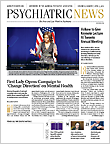Many Drinkers Use Prescription Drugs That Interact Negatively With Alcohol
The combination of alcohol and certain prescription medications has the potential to lead to adverse health effects, yet little is known about the prevalence of alcohol-interactive (AI) prescription medications among drinkers, according to the National Institute on Alcohol Abuse and Alcoholism (NIAAA). To shed some light on such rates, NIAAA researchers analyzed data on more than 26,000 adults aged 20 and older regarding past-year use of alcohol and past-month use of prescription drugs.
The results showed that 42 percent of current drinkers reported using medications that were classified as AI prescription drugs. Among current drinkers aged 65 and older, the prevalence of AI medication use was nearly 80 percent. Collectively, study participants reported use of almost 600 prescription drugs known to interact negatively with alcohol. Antidepressants, antipsychotics, and antihypertensive medications were among the most commonly reported AI medications.
“Our findings show that a substantial percentage of people who drink regularly, particularly older adults, could be at risk of harmful alcohol and medication interactions,” said lead author Rosalind Breslow, Ph.D., M.P.H., an epidemiologist in the NIAAA Division of Epidemiology and Prevention Research. “We suggest that people talk to their doctor or pharmacist about whether they should avoid alcohol while taking their prescribed medications.”
Though the study did not confirm whether drinking and medication use overlapped based on the available data, the researchers noted that the study highlights the potential scale of concurrent use of alcohol and AI prescription medicines. “Given the adverse health risks of combining alcohol with AI prescription medications, future efforts are needed to collect data to determine actual simultaneous prevalence,” the researchers concluded.
Breslow R, Dong C, White A. Prevalence of alcohol-interactive prescription medication use among current drinkers: United States, 1999 to 2010.
Alcohol Clin Exp Res 2015. 39(2):371-9.
Texting May Be Better Than Smartphone Apps as Mental Health Intervention
Instead of suggesting that patients download smartphone apps as an additional therapy for mental illness, try suggesting the use of readily available cellphone technology to achieve the same or better results, said authors of a study in the health-related technology journal Personal and Ubiquitous Computing.
After interviewing 325 patients from a mental health outpatient clinic about their cellphone ownership and usage patterns, researchers from Clemson University and Indiana University found that 80 percent of surveyed patients used texting, whereas many did not use mobile applications. Furthermore, participants who used texting also reported that they were more comfortable with texting their mental health care provider, implying that texting may be an appropriate feature for mobile health interventions, said the researchers.
“By utilizing a technology that is readily available and familiar to so many Americans,” said lead author Kelly Caine, Ph.D., an assistant professor in human-centered computing at Clemson, “we see a huge potential to improve treatment outcomes” and provide additional treatment options to patients who may have limited access to mental health care. Caine and colleagues plan to undertake research investigating the different types of treatment aids that can be offered via texting as well as mobile security options that will help protect personal medical information.
Campbell B, Caine K, Connelly K, et al. Cellphone ownership and use among mental health outpatients in the USA.
Personal and Ubiquitous Computing. 2015. 19:2 (367-378).
No Increased Risk Found for Behavior Problems in Children of Lesbian Parents
A new study reaffirms earlier findings that adolescents in lesbian-parent households do not display significant behavioral problems when compared with adolescents raised by heterosexual parents.
The study was conducted in 67 youth from lesbian-parent families and 67 youth from heterosexual-parent families in the Netherlands—in 2001 the first country to legalize same-sex marriage.
Results showed that adolescents raised by lesbian parents showed no significant differences in internalizing behaviors, such as being withdrawn, anxious, or depressed, or displaying unfavorable behaviors toward others, such as aggression. When problem behaviors in adolescents of lesbian parents were identified, the researchers found that they were associated with homophobic stigmatization directed as these youth. Youth who reported more homophobic stigmatization demonstrated more behavior problems.
Senior author Nanette Gartrell, M.D., a psychiatrist and visiting distinguished scholar with the Williams Institute of UCLA School of Law, suggested that during routine health assessments of children of same-sex parents, clinicians should ask questions about experiences with stigmatization so that they can identify and recommend support services for such youth, particularly those living in countries that are less accepting of people who are lesbian, gay, bisexual, or transgender. ■
Van Rijn-van Gelderen L, Bos H, Gartrell N. Dutch adolescents from lesbian-parent families: how do they compare to peers with heterosexual parents and what is the impact of homophobic stigmatization?
J Adolesc. February 3 2015. [Epub ahead of print]
